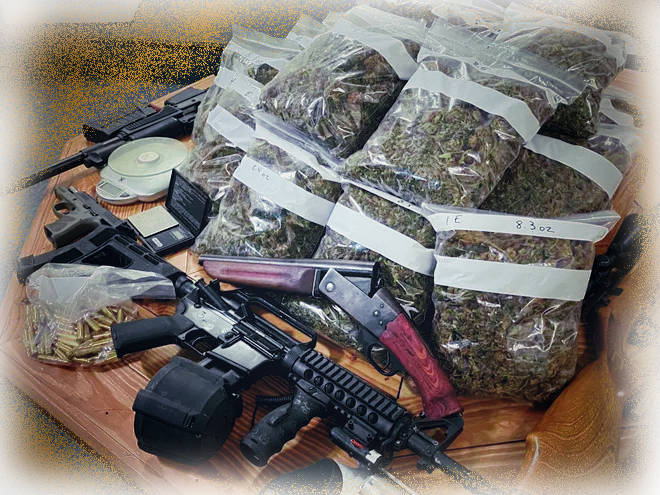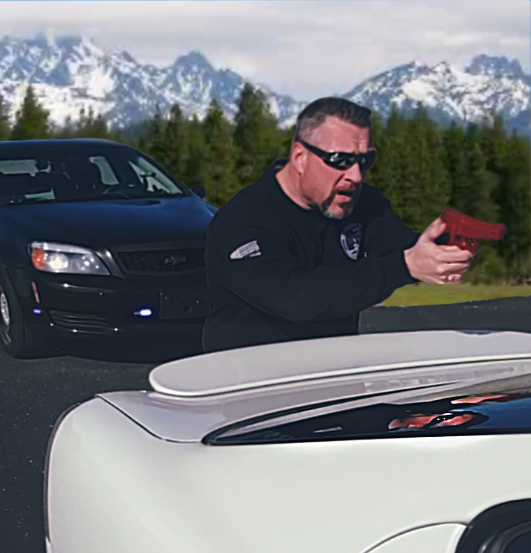STOPS Tactical Criminal Interdiction, NILEA- STCI2025-01

until May 06, 2025 16:00
DOWNLOAD COURSE DOCUMENTS
About this course
“Good tactics can save even the worst strategy.
Bad tactics will destroy even the best strategy.”
-George S. Patton
Course Overview
 Interdiction is widely taught across the country. Various classes teach on this topic, whether learning “The Drive” or employing a high volume of stops. However, the “tactics” to keep the interdiction officer safe are constantly overlooked or rarely highlighted. STOPS Tactical Criminal Interdiction is a training program that stresses proactive officers’ safety, giving them a foundation for success in the interdiction world.
Interdiction is widely taught across the country. Various classes teach on this topic, whether learning “The Drive” or employing a high volume of stops. However, the “tactics” to keep the interdiction officer safe are constantly overlooked or rarely highlighted. STOPS Tactical Criminal Interdiction is a training program that stresses proactive officers’ safety, giving them a foundation for success in the interdiction world.
STOPS Tactical Criminal Interdiction focuses on tactics the proactive officer should utilize when seeking the criminal element. We have developed a tactical course that breaks the stop/contact into three parts: the beginning, middle, and end of contact. Using these concentrated training areas; we can identify where tactics need to override habit, routine, and complacency. While taking drugs, guns, and criminals off our roads is pivotal to interdiction, it is more important to get home to loved ones at the end of the shift. This course outlines practical and easy-to-implement tactics to employ when hunting down criminals in your jurisdiction. With a combination of classroom and outdoor instruction, this course will cover the rapid assessment needed to categorize a traffic stop properly. We will highlight several tactics taught in the STOPS program, including an in-depth breakdown of Unknown Risk Stops. Using these proven tactics can accentuate the ability to read verbal and non-verbal cues of criminal activity. While this is not a class covering specifics of a roadside interview or hidden compartments, it is an overview of interdiction, where to employ it, and the differences between street and highway interdiction. Tactics taught here work in either application.
What will the student learn?
- Approach patterns on a traffic stop with emphasis on the passenger-side approach.
- Walk-Back and Walk-Thru patterns used taught in STOPS Unknown-Risk techniques.
- How to determine between a Low-Risk and Unknown-Risk traffic stop.
- How to escape from Ambush Positions, which are outlined in the classroom.
- How to safely search under consent and proper placement of violator(s) and back-up.
- Case law pertinent to stopping vehicles and then leading into a consensual or PC search.
What will the student be required to do?
- The student will learn from a structured PowerPoint in the classroom covering facts and outlines of tactics to be employed later in outdoor/field training. There will be a breakdown of several vital videos showing why these tactics are necessary for successful interdiction.
- This course combines classroom and outdoor activities to keep the student engaged and interested in learning concepts to enhance their ability to seek out the criminal element, quickly identify it, and be prepared if a lethal force encounter occurs
Course Breakdown
Train Hard * Train to Win
 Course Intensity
Course Intensity
The content and pace of this course will be challenging for most students. Some videos in this course may shock those with a more sensitive conscience.
 Physically Demanding
Physically Demanding
This course’s style combines classroom lectures and outdoor practical applications; the student must successfully demonstrate the ability to escape from ambush zones.
 Mentally Challenging
Mentally Challenging
Seeking out the criminal that has masked himself within the general innocent motoring public is not easy. Conducting rapid assessments of violators while also staying tactical is challenging and will be addressed throughout this training course. Students will analyze situations represented in videos and reach conclusions about safer tactics to use while conducting interdiction stops.
 Core Building
Core Building
Proactive officers engage in traffic stops daily. Now, more than ever, officers dealing with the public on traffic stops or other calls for service are under the microscope. Completing this course will provide students with a foundation rooted in safe tactics and professionalism that will lead to successful interactions with criminals and the innocent motoring public.

 Student Take Away
Student Take Away
- Several approach patterns for initial walk-up to a violator and options for calling the violator back to the patrol vehicle
- A clear understanding of interdiction, why it is needed, and the differences between street and highway interdiction
- Recognizing ambush zones and quickly escaping them in a lethal force confrontation
- A safe and effective way to search vehicles while in contact with a violator
 Course Accreditation/Certification/Completion
Course Accreditation/Certification/Completion
- The student will receive a certificate of course completion.
 Course Hours
Course Hours
- (3 days) 21-hour course.
- No Re-certification is required.
Required Course Equipment
Attending students will need to be enrolled individually and online. The student must provide proof of employment by credentials, work-verified email, or authorization from their agency’s training coordinator. All students must be on duty and not forced to attend the training course.
Students are required to bring the following equipment with them to class.
- There are no required items to bring to this course.
**No live weapons, chemical agents, or intermediate weapons are allowed in the training area**
Instructors
-

Brad Keller
Brad Keller
Law Enforcement Background:
Active Law Enforcement Professional since May 1999
Career Milestones:
Emergency Response Team 2002 - Present
Mechanical & Ballistic Breach Instructor 2017 - Present
Stops Instructor 2002 - Present
Pro Train Instructor Trainer - 2019 - Present
Taser Instructor 2017 - Present
LETB Physical Tactics Trainer – 2002 - Present
Certified Harley Davidson Police Motorcycle Operator
Desert Snow Member 2007 - Present
National Criminal Enforcement Association Member 2004 - Present
Board Member, National Criminal Enforcement Association – 2014 – Present
Criminal Interdiction Instructor
Undercover Operations
Narcotics Investigations
Criminal Investigations
Currently serving as Patrol Captain for city department, Indiana
Public Information Officer 2019 - Present
Adjunct Professor, Criminal Justice, Grace College
Bachelor of Science, Criminal Justice, 2005




